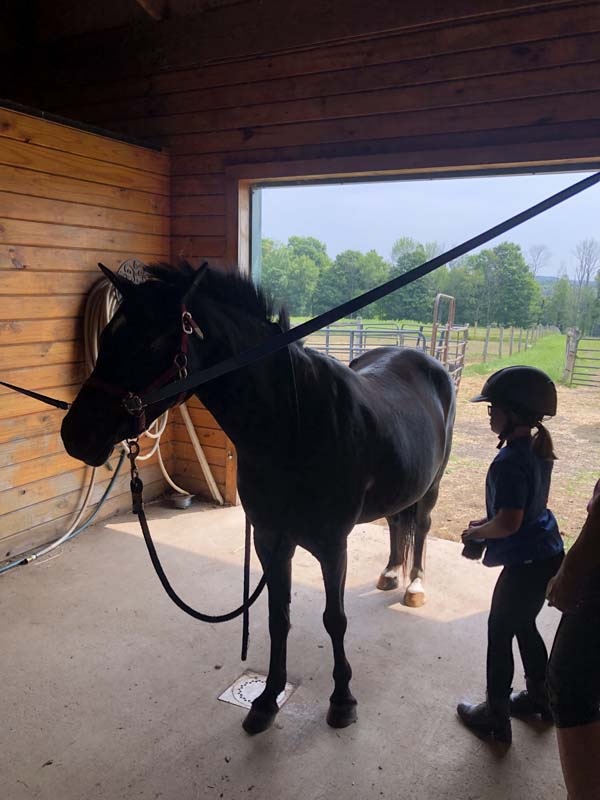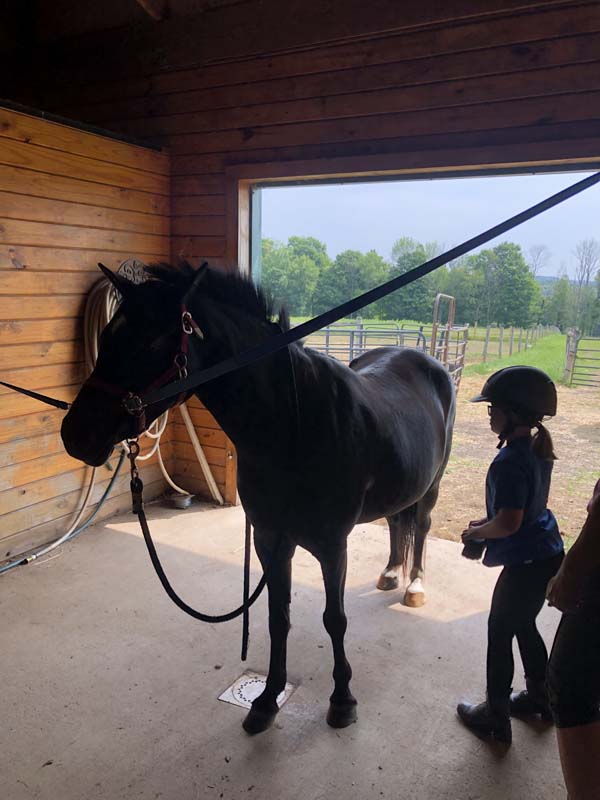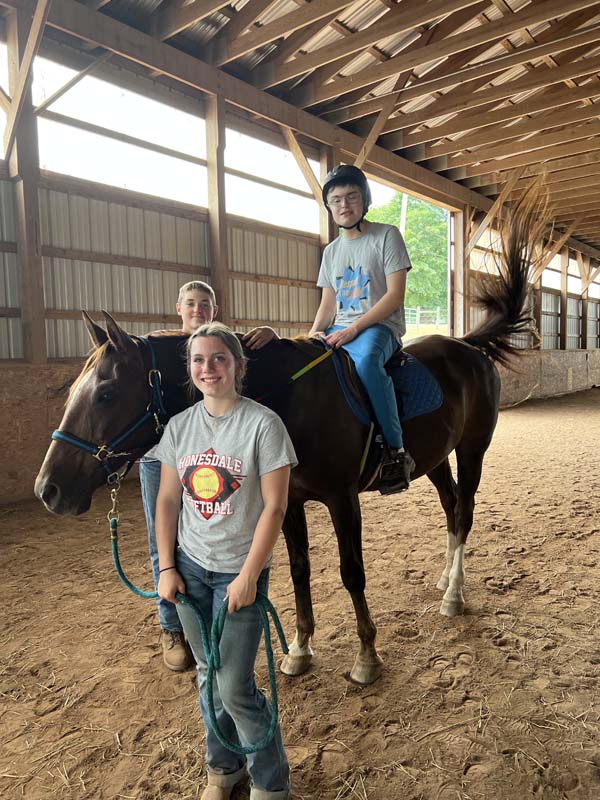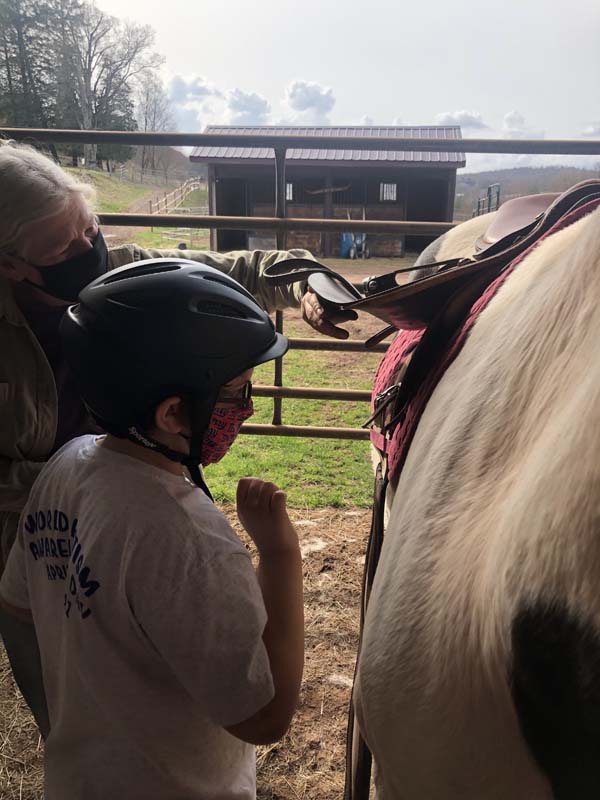
Therapeutic Horsemanship
EAS in Horsemanship involves mounted and unmounted activities specifically designed for the individual needs of each participant. Our instructors develop lesson plans that include activities and fun, creative games to develop horsemanship skills and provide the healthful benefits of interacting with horses.
Therapeutic Riding
Horseback riding has a variety of physical, social and emotional benefits. In mounted activities the rhythmic movement of the horse moves the rider’s body in a manner similar to the human gait, developing muscle strength, balance, cognition, and sensory/motor skills. Other physical benefits include improved fitness, coordination and posture. Horseback riding can be relaxing (calming) or invigorating, depending on the horse, the environment and the activities the instructor may present. Taking place indoors and outdoors, with the horses, the instructor and a helpful team of volunteers, riding has social benefits within a judgement free community.
Unmounted or ground work activities
Unmounted activities focus on building horsemanship skills and fostering a deeper connection with the horse. These activities include grooming, horse care, tacking, leading, and understanding horse behavior. By engaging fully with their equine partner, participants develop confidence, patience, and responsibility while gaining the healthful and emotional benefits of interacting with horses.
- Core Benefits of Therapeutic Riding
- Develop Muscle Strength
- Balance
- Sensory Motor Skills
- Cognition
- Improved Fitness, coordination and posture
- Flexibility & Balance
- Recreational Opportunities
- Self Esteem & Confidence
- And FUN!

- Core Benefits of Therapeutic Riding
- Flexibility
- Muscle Strength
- Recreational Opportunities
- Confidence
- Balance
- Improved Coordination
- Self-Esteem
- FUN!

Why Horses?
Equines provide non-judgmental feedback to participants, giving them insight into their emotions, thoughts and behaviors, which leads to feelings of calmness, acceptance and understanding.
The following statement on the research done by the Institute of Heart Math supports this:
“In fact, research shows that people experience many physiological benefits while interacting with horses, including lowered blood pressure and heart rate; increased levels of beta-endorphins(neurotransmitters that serve as pain suppressors); decreased stress levels; reduced feelings of anger, hostility, tension and anxiety; improved social functioning; and increased feelings of empowerment, trust, patience and self efficacy.”

